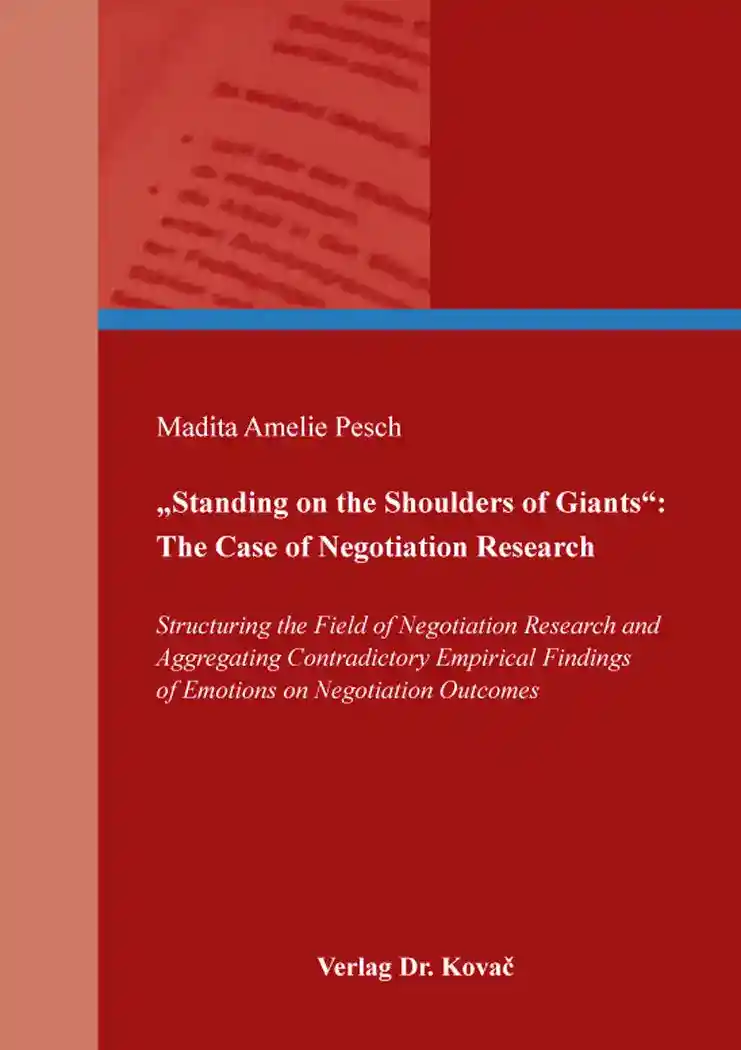Madita Amelie Pesch„Standing on the Shoulders of Giants“: The Case of Negotiation Research
Structuring the Field of Negotiation Research and Aggregating Contradictory Empirical Findings of Emotions on Negotiation Outcomes
Schriftenreihe innovative betriebswirtschaftliche Forschung und Praxis, volume 536
Hamburg 2021, 360 pages
ISBN 978-3-339-12022-9 (print)
ISBN 978-3-339-12023-6 (eBook)
About this book deutschenglish
Negotiations are omnipresent. They are prevalent in the business world and in everyday life. Besides their high practical relevance, negotiations also receive high attention by a huge amount of scholars from different research fields (e.g. psychology, economics or legal sciences). However, it becomes obvious that many research results merely coexist, even if they are concerned with similar topics. Furthermore, many empirical findings are characterized by enormous inconsistencies. Hence, on the one hand, negotiation research requires a structure that unites similar research results. On the other hand, it is of paramount importance to redress inconsistencies as far as possible.
The aim of the dissertation is to target the mentioned issues existing in current academic negotiation literature. This is done by two quantitative-empirical studies. Regarding the structuring of the research field, the first study of the dissertation focuses on bibliometric methods. With the help of a cluster analysis, the content-related interconnectedness of the most influential publications of the research field is identified in order to merge interrelated publications to clusters with specific topics. To decrease some of the identified inconsistencies of empirical negotiation studies, the second study aims to derive a, until now, missing reliable overall effect for anger on negotiation outcomes in comparison to emotional neutrality and happiness. In the course of several meta-analytical models, eight hypotheses are examined that are based on the Emotions as Social Information (EASI) model. The findings of the second study show that the expression of anger significantly increases the economic negotiation outcomes of the angry negotiator, in comparison to emotional neutrality and happiness. Moreover, it is underlined in a meta-regression that this positive effect is strengthened in numerous ways: if the power level of the negotiation partner is low, the underlying negotiation situation is competitive, the anger expression is not personally directed to the partner him- or herself, the anger is perceived as real, and the anger is not expressed via text channels. However, besides the positive effects of anger in negotiations, it is also shown that anger negatively effects subjective negotiation outcomes.
